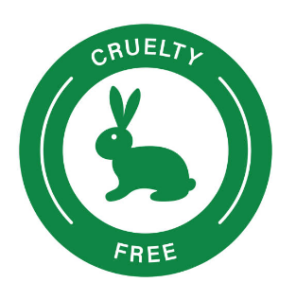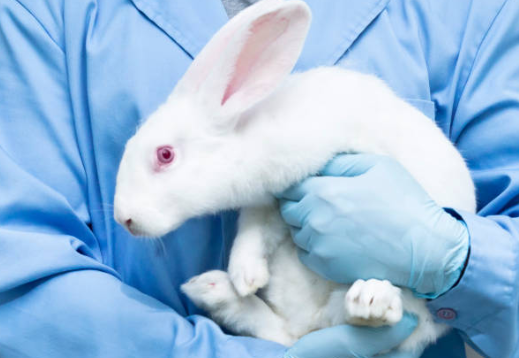The Conscience of Cosmetics




In the sprawling landscape of the beauty industry, where innovation meets consumer demand, lies a contentious issue at the intersection of ethics and efficacy: animal testing. The practice of conducting experiments on animals to assess the safety and efficacy of cosmetic products has long been a subject of debate, igniting fervent discussions among stakeholders ranging from industry insiders to animal rights activists.
On one side of the debate stand proponents who argue that animal testing is a necessary evil, a crucial step in ensuring the safety and efficacy of cosmetics before they reach the hands of consumers. They contend that without animal testing, companies would be unable to assess the potential risks and adverse effects of new ingredients, leaving consumers vulnerable to harm. Moreover, they assert that regulatory agencies around the world require animal testing as a means of demonstrating compliance with safety standards, making it a legal obligation for companies seeking to bring new products to market.
On the other side of the divide are critics who condemn animal testing as a cruel and outdated practice, incompatible with modern standards of ethics and compassion. They point to the inherent suffering endured by animals subjected to experimentation, from confinement in small cages to invasive procedures that cause pain and distress. Moreover, they question the scientific validity of animal testing, citing instances where results obtained from animal models fail to accurately predict human responses, leading to false assurances of safety.
Understanding Animal Testing
Animal testing, also known as vivisection, involves conducting experiments on animals to assess the safety and efficacy of various products, including cosmetics, skincare, and hair care formulations. Common tests include skin and eye irritation tests, oral toxicity tests, and lethal dose tests, among others. Animals such as rabbits, mice, rats, guinea pigs, and even non-human primates are subjected to these experiments, often enduring pain, distress, and suffering in the process.
Proponents of animal testing argue that it is necessary to ensure consumer safety and compliance with regulatory standards. They assert that animal testing provides valuable data on the potential risks and adverse effects of cosmetic ingredients, allowing companies to develop products that are safe for human use. Additionally, they contend that animal testing is required by regulatory agencies in many countries, making it a legal obligation for companies seeking to bring new products to market.
However, critics of animal testing raise significant ethical concerns regarding the treatment of animals and the validity of using animal models to predict human responses. They argue that subjecting animals to painful and often lethal experiments is inherently cruel and unjustifiable, particularly when alternative methods exist. Furthermore, they question the scientific validity of animal testing, citing instances where results obtained from animal models fail to accurately predict human reactions.


The Ethical Debate
The ethical debate surrounding animal testing in the beauty industry revolves around several key considerations, including animal welfare, human safety, scientific validity, and regulatory requirements.
One of the primary ethical concerns raised by critics of animal testing is the suffering endured by animals subjected to experimentation. Animals used in cosmetic testing are often confined to small cages, deprived of social interaction, and subjected to invasive procedures that cause pain and distress. Additionally, many animals are euthanized at the conclusion of experiments, further highlighting the ethical implications of their use in research.
From an ethical standpoint, the inherent value of animal life and the principle of non-maleficence dictate that unnecessary harm and suffering should be avoided whenever possible. Critics argue that subjecting animals to cosmetic testing for the sake of human vanity is unjustifiable, particularly when alternative methods, such as in vitro testing and computer modeling, offer viable alternatives that do not involve animal cruelty.
However, critics counter that animal testing is not always an accurate predictor of human responses and may even lead to false assurances of safety. They point to instances where cosmetic ingredients deemed safe in animal studies have later been found to cause harm in humans, highlighting the limitations of animal models in predicting human toxicity. Furthermore, they argue that alternative methods, such as cell-based assays and computer simulations, offer more accurate and humane approaches to assessing human safety.
Another key aspect of the ethical debate is the scientific validity of animal testing as a means of predicting human responses. Critics argue that the physiological and genetic differences between animals and humans render animal models unreliable for assessing human toxicity and efficacy. They assert that species-specific variations in metabolism, anatomy, and physiology can lead to misleading results and fail to accurately predict human outcomes.
In contrast, proponents of animal testing maintain that while animal models may not be perfect, they still provide valuable insights into the potential risks and effects of cosmetic ingredients. They argue that animal testing serves as an important preliminary step in the research process, helping to identify potential hazards that can then be further evaluated using alternative methods or clinical studies in humans.
The role of regulatory agencies in mandating animal testing is another factor that contributes to the ethical debate. In many countries, including the United States and the European Union, regulatory agencies require cosmetic companies to conduct animal tests to demonstrate the safety of their products before they can be marketed to consumers. These requirements stem from decades-old regulations that were established at a time when animal testing was considered the standard method for assessing product safety.
Critics argue that these regulatory mandates perpetuate the use of animal testing in the beauty industry and hinder progress toward adopting alternative methods. They call for regulatory reforms that prioritize the development and validation of non-animal testing approaches, such as in vitro assays and computational models, as a means of replacing animal testing altogether.


Alternatives to Animal Testing
In recent years, the pursuit of alternatives to animal testing has gained significant momentum within the beauty industry, driven by ethical concerns, scientific advancements, and evolving regulatory landscapes. These alternative methods, collectively known as the “3Rs” (Replacement, Reduction, Refinement), offer promising avenues for conducting safety assessments and efficacy testing without the need for animal experimentation.
Replacement involves substituting animal experiments with non-animal methods that are often more accurate, cost-effective, and ethically sound. One such method is in vitro testing, which utilizes human cell cultures to assess the safety and efficacy of cosmetic ingredients. By mimicking human biological systems more closely than animal models, in vitro tests offer insights into human responses to cosmetics with greater precision and reliability. Additionally, tissue engineering techniques allow researchers to construct three-dimensional models of human skin, eyes, and other organs, providing valuable platforms for studying the effects of cosmetic products in a controlled laboratory setting.
Reduction strategies focus on minimizing the number of animals used in experiments through innovative study designs, data-sharing initiatives, and the optimization of testing protocols. By employing sophisticated statistical analyses and computational models, researchers can extract maximum information from minimal data, reducing the need for large-scale animal studies. Furthermore, the implementation of humane endpoints and ethical review processes ensures that animals are used sparingly and only when absolutely necessary, minimizing their exposure to pain, distress, and suffering.
Refinement efforts aim to enhance the welfare of animals used in research by implementing measures to minimize stress, discomfort, and harm. This includes providing enriching environments, such as spacious enclosures with opportunities for socialization and stimulation, to promote the psychological well-being of laboratory animals. Additionally, the use of anesthesia and analgesia during experimental procedures helps alleviate pain and discomfort, ensuring that animals are treated with compassion and respect throughout the testing process.
Beyond the laboratory, advancements in technology and collaboration have enabled the development of innovative approaches to safety assessment and efficacy testing. High-throughput screening platforms, robotic automation, and artificial intelligence algorithms allow researchers to conduct large-scale experiments with unprecedented speed and efficiency, generating vast amounts of data that can inform decision-making in the development of cosmetic products. Furthermore, partnerships between industry stakeholders, academic institutions, and regulatory agencies facilitate knowledge sharing and the validation of alternative methods, accelerating their adoption and acceptance within the scientific community.
In the regulatory arena, there is growing recognition of the importance of promoting alternative methods to animal testing as part of a broader commitment to animal welfare and scientific innovation. Regulatory agencies around the world, including the European Union and the United States, have implemented policies and initiatives to encourage the development and validation of alternative methods, incentivizing companies to invest in research and development in this area. Moreover, international collaborations and harmonization efforts seek to establish standardized guidelines and protocols for the use of alternative methods in safety assessment and regulatory decision-making, ensuring consistency and reliability across jurisdictions.


As the beauty industry continues to embrace alternative methods to animal testing, there is optimism that these approaches will not only enhance the ethical integrity of cosmetic research and development but also lead to more accurate, reliable, and humane outcomes. By prioritizing innovation, collaboration, and compassion, stakeholders across the beauty industry can work together to shape a future where safety and efficacy testing are conducted with the utmost respect for both human health and animal welfare.
The ethical debate surrounding animal testing in the beauty industry is complex and multifaceted, encompassing considerations of animal welfare, human safety, scientific validity, and regulatory requirements. While proponents argue that animal testing is necessary for ensuring the safety and efficacy of cosmetic products, critics condemn the practice as cruel, outdated, and unnecessary in the age of advanced scientific alternatives.
As the beauty industry continues to evolve, there is growing momentum toward adopting alternative methods to animal testing that prioritize both human safety and animal welfare. By investing in cutting-edge technologies, collaborating with regulatory agencies, and advocating for policy reforms, companies can lead the way toward a more ethical and sustainable future for cosmetic testing—one that protects consumers, advances scientific knowledge, and respects the inherent value of all living beings.

